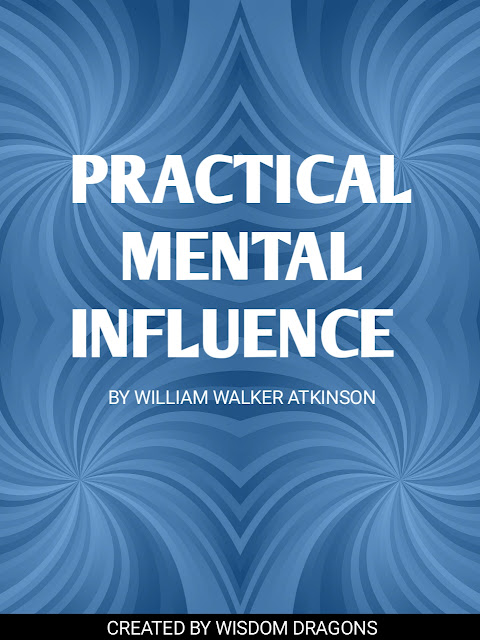THE RIDDLE OF LIFE/PART 8
CHAPTER
VIII
KARMA
--LAW OF ACTION
AND
RE-ACTION
THE
word Karma simply means action. But the connotation of the word is far-reaching,
for much more goes to the making of an action than the ordinary person might
think. Every action has a past which leads up to it; every action has a future
which proceeds from it; an action implies a desire which prompted it and a
thought which shaped it, as well as a visible movement to which the name of
'act' is usually confined. Each act is a link in an endless chain of causes and
effects, each effect becoming a cause, and each cause having been an effect;
and each link in this endless chain is welded out of three components, desire,
thought and activity. A desire stimulates a thought; a thought embodies itself
in an act. Sometimes it is a thought, in the form of a memory, that arouses a
desire, and the desire bursts into an act. But ever the three components—two
invisible and belonging to consciousness, one visible and belonging to the
body—are there; to speak with perfect accuracy, the act is also in
consciousness as an image before it is extruded as a physical movement.
Desire—or Will—Thought, Activity, are the three modes of consciousness.
This
relation of desire, thought and activity as 'action', and the endless
interlinkings of such actions as causes and effects, are all included under the
word Karma. It is a recognised succession in nature—i.e., a law. Hence Karma
may be Englished into causation, or the Law of causation. Its scientific
statement is: 'Action and reaction are equal and opposite.' Its religious
statement cannot be better put than in the well-known verse of a Christian
scripture: 'As a man soweth, so shall he also reap.' Sometimes it is called the
law of equilibrium, because whenever equilibrium is disturbed, there is a
tendency in nature to restore the condition of equilibrium.
Karma
is thus the expression of the divine nature in its aspect of law. It is
written: 'In whom there is no variableness, neither shadow of turning.' The
inviolableness of natural order; the exactitude of natural law; the utter
trustworthiness of nature—these are the strong foundations of the universe.
Without these there could be no science, no certitude, no reasoning from the
past, no presaging of the future. Human experience would become useless, and
life would be a chaotic irrationality.
What
a man sows, he reaps. That is Karma. If he wants rice, he must sow rice.
Useless to plant vines and to expect roses; idle to sow thistle-down and hope
for wheat. In the moral and the mental worlds, law is equally changeless;
useless to sow idleness, and hope to reap learning; to sow carelessness, and
look for discretion; to sow selfishness, and expect love; to sow fear, and hope
for courage. This sane and true teaching bids man study the causes he is
setting up by his daily desires, thoughts and actions, and realise their
inevitable fruiting. It bids him surrender all the fallacious ideas of
'forgiveness', 'vicarious atonement', 'divine mercy', and the rest of the
opiates which superstition offers to the sinner. It cries out as with a
trumpet-blast to all those who thus seek to drug themselves into peace: 'Be not
deceived; God is not mocked: whatsoever a man soweth that shall he also reap.'
That is the warning side of the law. But note the encouraging. If there is law
in the mental and moral world we can build our character; thought makes
quality; quality makes character. 'As a man thinks, so he is.' 'Man is created
by thought; what a man thinks upon, that he becomes.' If we meditate on
courage, we shall work courage into our character. So with purity, patience,
unselfishness, self-control. Steady persevering thought sets up a definite
habit of the mind, and that habit manifests itself as a quality in the
character. We can build our character as surely as a mason can build a wall,
working with and through the law. Character is the most powerful factor in
destiny, and by building a noble character, we can ensure a destiny of
usefulness, of service to mankind. As by law we suffer, so by law do we
triumph. Ignorance of law leaves us as the rudderless boat drifting on the
current. Knowledge of law gives us a helm by which we can steer our ship
whithersoever we will.
NEXT CHAPTER
The Three Threads of the Cord of Fate



Comments
Post a Comment